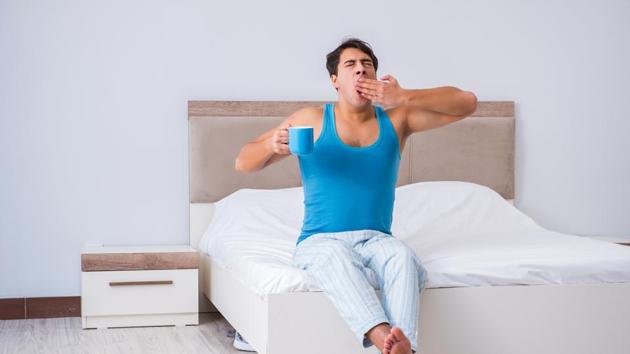Early birds lose out: Night owls have larger social networks than morning people
The study also showed that night owls are more central in their own networks. They stick to their kind and interact with others who stay up late.
Night owls - people who go to sleep late - tend to have wider social networks than morning persons, according to a study which showed that our inherent periods of sleep are linked to how we interact with others.

The study also showed that night owls are more central in their own networks. They stick to their kind and interact with others who stay up late.
“The digital breadcrumbs our daily phone use leaves behind can be used to monitor our behaviour. They provide a picture of our activities, movements, and communication,” said Talayeh Aledavood, doctoral researcher at Aalto University in Finland.
Aledavood used anonymous mobile phone data to investigate people’s patterns of behaviour. Times of sleep can be inferred from periods of no smartphone use. The timing of calls made to friends and the size of our social networks, based on calls, texts, or emails, reveal our social habits.
It is a lot harder to get accurate information like this from surveys, and it is possible to widen the scope of the study up to entire countries, researchers said. The findings may help understand and treat mental health issues.
Data collected and linked together from mobile devices, active social media use and other digital platforms could work as indicators for different mental disorders. Aledavood has outlined a method to collect data for this purpose.
“There are no clear-cut biomarkers for detecting mental disorders as there are for diabetes or tumours, so you have to find new ways to seek them out,” Aledavood said. “Disruptions in sleep rhythms can indicate several mental disorders, and my plan is to infer these disturbances from data collected from people’s use of digital devices,” she said.
The ultimate goal is to develop automated systems that can help patients to seek professional help before their condition turns severe. Making visualisations from the data collected could assist health care professionals to get an in-depth view of their patient’s condition.
Aledavood stresses that the privacy and information security of all study participants and particularly patients are crucial. “The data collection method we have developed has been designed to secure people’s privacy from the get-go. Future research and clinical use of our methods will go through strict ethical evaluation,” she said.
We have to be sure that a data collecting method or app is actually beneficial for a patient’s well-being and treatment,” Aledavood said.
Follow @htlifeandstyle for more
Catch your daily dose of Fashion, Health, Festivals, Travel, Relationship, Recipe and all the other Latest Lifestyle News on Hindustan Times Website and APPs.



